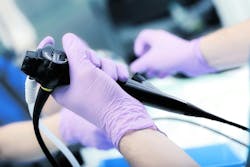New research from Cedars-Sinai suggests people who are scheduled for certain medical procedures should stop taking popular weight loss drugs in the days or weeks prior to avoid complications.
Investigators found glucagon-like peptide-1 receptor agonists (GLP-1RAs)—medications like Ozempic and Wegovy that are used to treat diabetes and obesity—are associated with an increased risk of aspiration pneumonia following endoscopy. The large, population-based study is published in Gastroenterology.
One way the new obesity medications work is by slowing digestion, so people feel full longer, causing them to eat less. This also means that food sits in the stomach longer. As a result, the stomach may not empty completely during the usual duration of fasting that is recommended ahead of a surgical procedure to decrease risk of aspiration, explained the study’s corresponding author, Ali Rezaie, MD, medical director of the GI Motility Program and director of bioinformatics at the MAST Program at Cedars-Sinai.
The study analyzed data from nearly 1 million de-identified U.S. patients who underwent upper or lower endoscopy procedures between January 2018 and December 2020. Patients who were prescribed GLP-1RA medications had a 33% higher chance of experiencing aspiration pneumonia than those who did not take these medications before the procedure. This comparison also considered other variables that could influence the outcome to ensure a fair comparison between the two groups.

